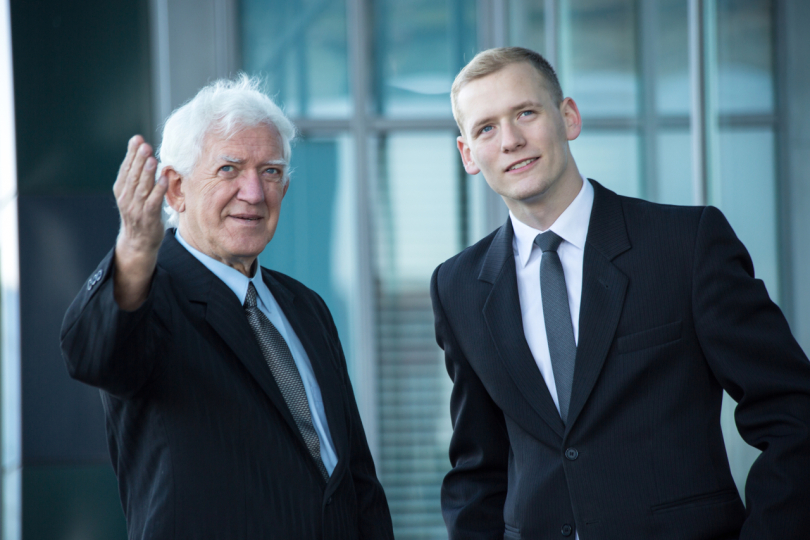-%D1%81%D1%8B%D1%80%D1%8B.jpg)
How Food Affects Political Regimes
Better nutrition can have a lot to do with the transition to democracy: the more protein-rich, high-quality foods appear in a society's diet, the higher the likelihood of democratic reforms. Apparently, a richer diet is associated with an increase in the middle class, which tends towards economic and political independence and democracy-fostering values. Andrey Shcherbak has found, based on a cross-country comparative study using data on 157 countries, that a change in people's eating habits can serve as a predictor of impending political change. His findings are published in the paper 'A Recipe for the Democracy? The Spread of the European Diet and Political Change'.
-%D0%B2%D1%83%D0%B7-%D1%81%D1%80%D0%B5%D0%B4%D0%B0%20%D0%B4%D0%BE%D0%B1%D1%80%D0%BE%D0%B6%D0%B5%D0%BB%D0%B0%D1%82%D0%B5%D0%BB%D1%8C%D0%BD%D0%B0%D1%8F.jpg)
Academic Environment Can Affect Student Honesty
Disciplining students for a variety of activities, such as downloading papers from the internet, engaging in plagiarism or cheating on exams may not work when academic dishonesty is so commonplace at university that even top performers tend to follow the crowd in this. Indeed, academic misconduct can be self-perpetuating: if a student gets away with cheating once, they are more likely to cheat next time, according to Natalia Maloshonok.
HSE Student Places Third at National Student Research Paper Competition
Maria Krivosheina, a second-year student in HSE’s Comparative Studies: Russian Literature in Cross-cultural Perspective master’s programme, placed third in Russia’s national student research paper competition in the category of Humanities and Social Sciences. Maria’s research focused on problems with how Sherlock Holmes was perceived in Russia at the beginning of the 20th century.
-%D0%B7%D0%B0%D0%B2%D0%BE%D0%B4-%D0%B0%D0%B2%D1%82%D0%BE%D1%81%D0%B1%D0%BE%D1%80%D0%BA%D0%B0.jpg)
Impact of Economic Crisis on Russian Subsidiaries of Western Multinationals
Despite the economic crisis, Western multinational corporations have been expanding their manufacturing facilities in Russia. Last year, foreign companies launched 63 new subsidiaries in Russia (twice as many as in 2013), and closed no more than ten. This year, they expect to put into operation a few dozen new subsidiaries, according to HSE researchers' study 'Russian Manufacturing Subsidiaries of Western Multinational Corporations: Preliminary Results and Future Prospects.'

Why Economic Forecasters Fail
The human factor, a reluctance to scare investors and the absence of tangible rewards for predicting recessions are some of the reasons why professional forecasters sometimes fail to signal economic downturns. In their study, Sergey Smirnov and Daria Avdeeva found evidence indicating that professional forecasters tend to hold on to optimistic scenarios for too long.
-%D0%BC%D0%B0%D0%BC%D0%B0%20%D1%81%20%D1%80%D0%B5%D0%B1%D0%B5%D0%BD%D0%BA%D0%BE%D0%BC%20%D0%B7%D0%B0%20%D1%81%D1%82%D0%BE%D0%BB%D0%BE%D0%BC.jpg)
How Children Affect Mother's Career
Mothers of three or more children are four times as likely to be unemployed compared to mothers of one or two children, according to Alina Pishnyak's study 'Employment opportunities and constraints for women in Moscow.'

Pets Can Help Families Deal with Relationship Problems
The decision to get a family pet tends to be associated with children’s growing-up crises. According to the researchers, many parents adopt a cat or a dog at a time when their son or daughter is going through a major change, such as starting school or entering puberty. At such times, the child's attitudes towards themselves and the outside world can change drastically, causing anxiety in the family. Research suggests that pets can help both parents and children cope with stress. The study's findings are published in the paper 'The likelihood of getting a family pet depending on the age of children.'

Fathers and Sons Don’t Compete on Labour Market
Younger and older employees are not competitors on the labour market. The possible increase in the retirement age and, accordingly, increased employment among the elderly won’t add to youth unemployment and won’t limit the opportunities for young people’s employment. These are the findings made by Sergey Roshchin and Victor Lyashok in their study ‘Younger and older employees on the Russian labour market: substitutes or not?’
HSE Announces Student Research Competition
Students from universities in Russia and abroad have until October 31st to submit their applications for HSE’s open competition for research conducted in business informatics, computer science, mathematics, media communications, and political science.

What Employers Expect from Graduates
School reputation and graduating with honours are not as important for future employers as graduates' personal qualities and work experience, according to Natalia Bondarenko and Tatiana Lysova's study "Job Search Models, Recruitment Criteria, and Competence and Skill Assessment of Vocational Education Graduates: Employer Perspective." In 2015, they analysed the findings from a survey of 1,019 CEOs of Russian companies in six industries (manufacturing, communications, construction, transport, trade and services) as part of the Monitoring of Educational Markets and Organisations (MEMO) project conducted by the HSE jointly with the Levada Centre.


Deadline for applications to present academic reports - January 20, 2025